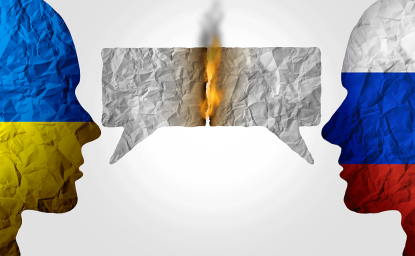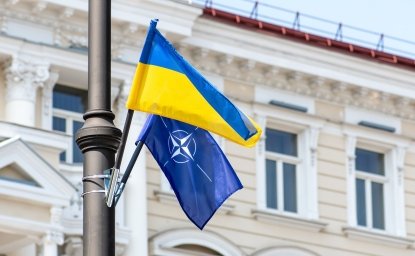This transcript has been lightly edited for clarity.
Typically you have a summit between the Indian and Russian leaders every year, but there had not been one since Russia's invasion of Ukraine. And I think that for both leaders, it was important to show that even with that, with that gap, it's still an important relationship. And this is why a big part of this summit was very heavy on the optics.
You know, we had all these bear hugs between the two leaders. We had Modi being conferred with the highest civilian honor that Russia can provide. This is all about trying to telegraph a message to audiences in Russia and India, but also far beyond, including in Washington, that this is a relationship that continues to be very strong.
What Modi gains by this visit is to make it very clear that even as India has moved closer to the West and even as it has been, expanding security cooperation with the US, on levels that are really unprecedented, it remains wedded to its long-standing policy of balancing its relations with the US and the West more broadly, and Russia and other states that are aligned away from the West.
From a tactical perspective, what Modi got out of this visit, is that he solidified and strengthen a relationship with the country that provides essential items, particularly cheap oil, as well as some forms of military supplies that India is not able to get from any other country at a comparable cost point.
So in that sense, it was important for Modi to go to Moscow and really send a signal of just how important this relationship remains.
I'd argue that Putin gets a lot more out of this visit than Modi does. As important as it was for Modi, I think for Putin, one of the major goals was to show the world, and particularly the West and especially Washington, that, Russia is not isolated, that the war in Ukraine has not put Russia in a position where it has become a global pariah.
It has not. And, you know, Putin can clearly point to the fact that you have the world's largest democracy, one of the more consequential global players, one of the world's largest economies. The leader of that country coming to Russia for a two day visit.
It's quite notable that there were not that many new agreements at all to come out of this summit. There was a joint statement that was issued at the end that was very long and very substantive and talked a lot about, a desire to cooperate in a lot of different areas. But in terms of specific new deals, there really wasn't that much.
There were no splashy new initiatives. There were about 7 or 8 different MOU’s, which essentially established a commitment to cooperate in a number of spaces. None of them military, none in security, mainly focused on business cooperation, people to people ties. For instance, there is an agreement between the two major media outlets in both countries to cooperate more.
So I think that, you know, you certainly had some new initiatives, but, there was really no big major deliverable that came out of this summit, other than other than the summit itself.












